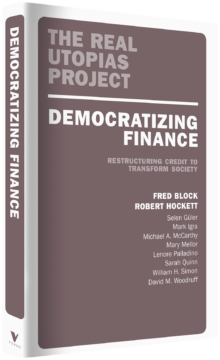 Kevin P. Donovan in Boston Review:
Kevin P. Donovan in Boston Review:
When the Grameen Bank and the Bangladeshi academic who helped start it, Muhammad Yunus, won the 2006 Nobel Peace Prize, the event marked the rise of microfinance—the style of global development they pioneered. The prize committee joined supporters such as the U.S. Agency for International Development (USAID) and governments across the Global South in valorizing the idea that making small loans to those typically considered unworthy of credit could “empower” them and “alleviate” poverty.
After experimenting for a number of years, Yunus launched the Grameen Bank in 1983, lending working capital (often as little as a few dollars) to rural women making handicrafts or running shops. Grameen’s appeal was captured in the idea of “social business” that Yunus extolled. While he readily critiqued exclusionary banks and predatory moneylenders, microcredit was hardly opposed to commerce. Instead, it made markets the key domain for fighting global poverty. After all, these were loans not handouts. Lenders expected women to use the money profitably, often grouping Grameen borrowers together so they were jointly liable for individual debts. They believed that social pressure and mutual support would significantly diminish the rate of default—and it did.
More here.
